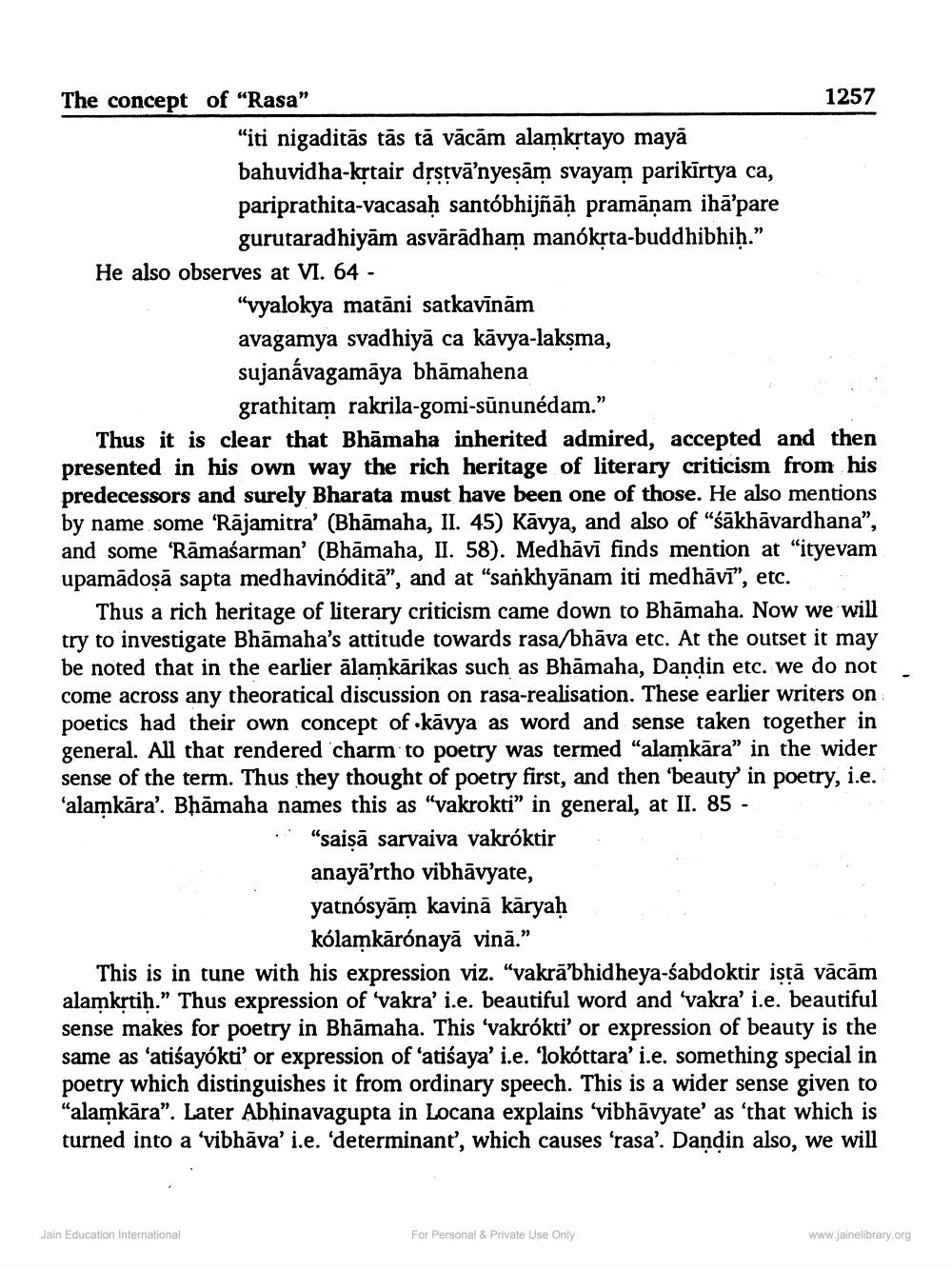________________
The concept of "Rasa"
"iti nigaditās tās tā vācām alamkṛtayo mayā bahuvidha-kṛtair dṛṣṭvā'nyeṣām svayam parikīrtya ca, pariprathita-vacasaḥ santóbhijñāḥ pramāṇam ihā'pare gurutaradhiyām asvārādham manókṛta-buddhibhiḥ." He also observes at VI. 64 -
"vyalokya matāni satkavīnām
avagamya svadhiya ca kavya-lakṣma, sujanávagamāya bhāmahena
grathitam rakrila-gomi-sununédam."
Thus it is clear that Bhamaha inherited admired, accepted and then presented in his own way the rich heritage of literary criticism from his predecessors and surely Bharata must have been one of those. He also mentions by name some 'Rājamitra' (Bhāmaha, II. 45) Kavya, and also of "sakhavardhana", and some 'Rāmaśarman' (Bhāmaha, II. 58). Medhāvī finds mention at "ityevam upamādoṣā sapta medhavinódita", and at "sankhyānam iti medhāvī", etc.
Jain Education International
1257
Thus a rich heritage of literary criticism came down to Bhamaha. Now we will try to investigate Bhamaha's attitude towards rasa/bhāva etc. At the outset it may be noted that in the earlier alamkarikas such as Bhāmaha, Dandin etc. we do not come across any theoratical discussion on rasa-realisation. These earlier writers on poetics had their own concept of kavya as word and sense taken together in general. All that rendered charm to poetry was termed "alamkara" in the wider sense of the term. Thus they thought of poetry first, and then 'beauty' in poetry, i.e. 'alamkāra'. Bhāmaha names this as "vakrokti" in general, at II. 85
"saiṣā sarvaiva vakróktir anaya'rtho vibhāvyate, yatnósyām kavinā kāryaḥ kólamkārónayā vinā."
This is in tune with his expression viz. "vakra'bhidheya-sabdoktir iṣṭā vācām alamkṛtih." Thus expression of 'vakra' i.e. beautiful word and 'vakra' i.e. beautiful sense makes for poetry in Bhamaha. This 'vakrókti' or expression of beauty is the same as 'atiśayókti' or expression of 'atisaya' i.e. 'lokóttara' i.e. something special in poetry which distinguishes it from ordinary speech. This is a wider sense given to "alamkara". Later Abhinavagupta in Locana explains 'vibhavyate' as 'that which is turned into a 'vibhāva' i.e. 'determinant', which causes 'rasa'. Dandin also, we will
For Personal & Private Use Only
www.jainelibrary.org




